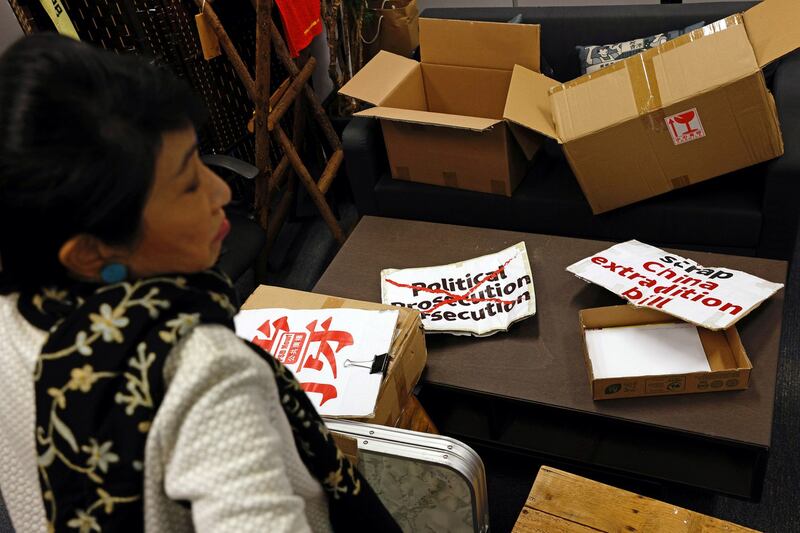Two years after national security police rounded up dozens of former opposition lawmakers and democracy activists in mass arrests for "subversion," politicians are calling on the British government for the immediate release of one of the arrestees on humanitarian grounds, amid reports that her husband is critically ill.
The cross-party group of 54 U.K. parliamentarians and public figures called on Foreign Secretary James Cleverly to ask the Hong Kong government for the immediate release of former pro-democracy lawmaker Claudia Mo, on compassionate grounds.
The letter notes reports that Claudia Mo’s husband, British journalist Philip Bowring, is currently in a hospital ICU with pneumonia, according to a copy posted online.
"Given that her husband and her children are U.K. citizens and Claudia previously held U.K. citizenship, we believe the Foreign, Commonwealth, and Development Office has a special responsibility for her welfare and to champion her release," the letter said.
A panel of three handpicked national security judges and no jury is currently in the process of trying 47 former pro-democracy lawmakers and political activists including Mo for "incitement to subvert state power" at Hong Kong's High Court.
The prosecution has said their bid to win a majority of seats by running a primary election for pro-democracy candidates was "a conspiracy" to undermine the city's government and take control of the Legislative Council.
The defendants could face life imprisonment under a draconian national security law imposed on Hong Kong by the ruling Chinese Communist Party from July 1, 2020.
"Given our legal and historic ties to the people of Hong Kong ... more must be done by the Foreign, Commonwealth, and Development Office to support the 47 democrats and to secure their release," said the letter, which was signed by former colonial governor Lord Patten of Barnes, former foreign secretary Malcolm Rifkind and the chair of the Foreign Affairs Select Committee Alicia Kearns, among others.

Benedict Rogers, who heads the London-based rights group Hong Kong Watch, said the British government should listen.
“On the two-year anniversary of the arrests of the 47 democrats and their ongoing trial, we hope that the Foreign Secretary will listen to this eminent, cross-party, and bicameral group of parliamentarians and push for the release of Claudia Mo on compassionate grounds so she can visit her husband who is in the ICU," Rogers said in a statement on the group's website.
"Furthermore, the FCDO must do more to take responsibility for those political prisoners in Hong Kong with direct links to the U.K., whether that is through family members, previously held citizenship, or British National Overseas status," he said.
The Department of Justice and Correctional Services Department declined to comment on individual cases, but added that prison rules allow people in custody to apply for a leave of absence to see dying family members, the English-language South China Morning Post reported.
"The commissioner would consider factors such as the term of sentence, nature of the person’s offenses, criminal background and risk of escape when granting approval," the paper said.
Chakra Yip, who heads the London-based rights lawyers' advocacy group "29 Principles," said she worries that the Hong Kong authorities won't honor such requests in the case of political prisoners, however.
"If the family members of human rights lawyers jailed in China die or become critically ill, Chinese officials still have no effective way to grant them leave of absence for a temporary visit," Yip said. "There has been no improvement in this situation in 10 years."
"It's concerning that Hong Kong may be handling requests for leave of absence from [political] detainees in the same way as [mainland] China," she said.
She cited the cases of Chinese rights lawyers Yu Wensheng and activist Guo Feixiong, both of whom have recently been prevented from leaving China to take care of dying next-of-kin.
Translated by Luisetta Mudie. Edited by Malcolm Foster.
